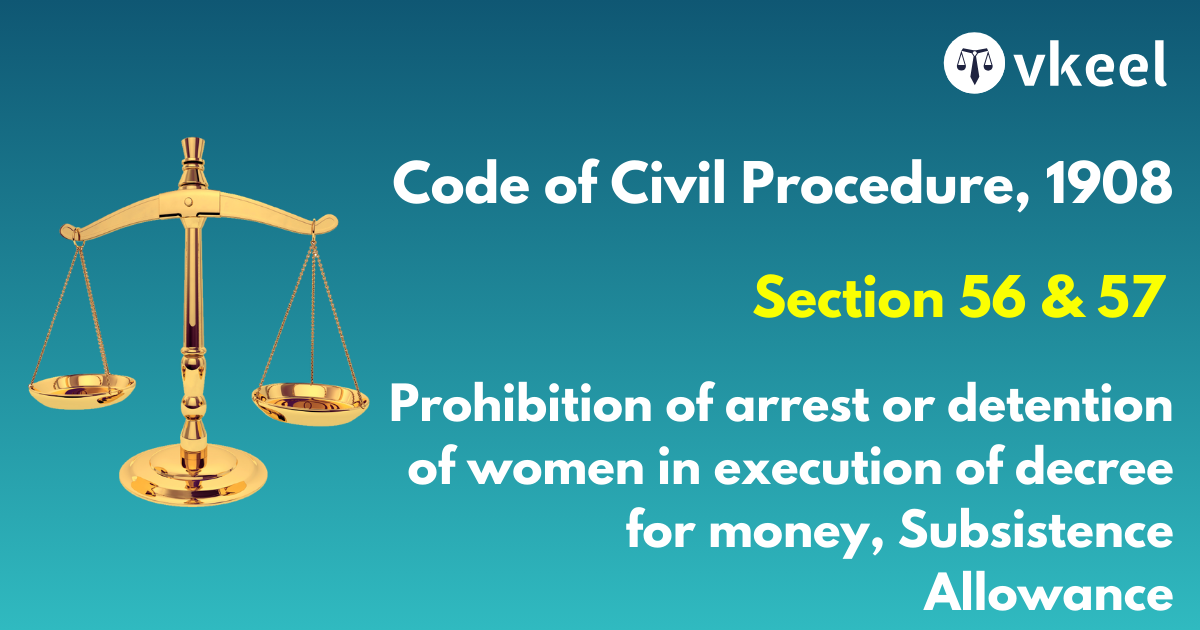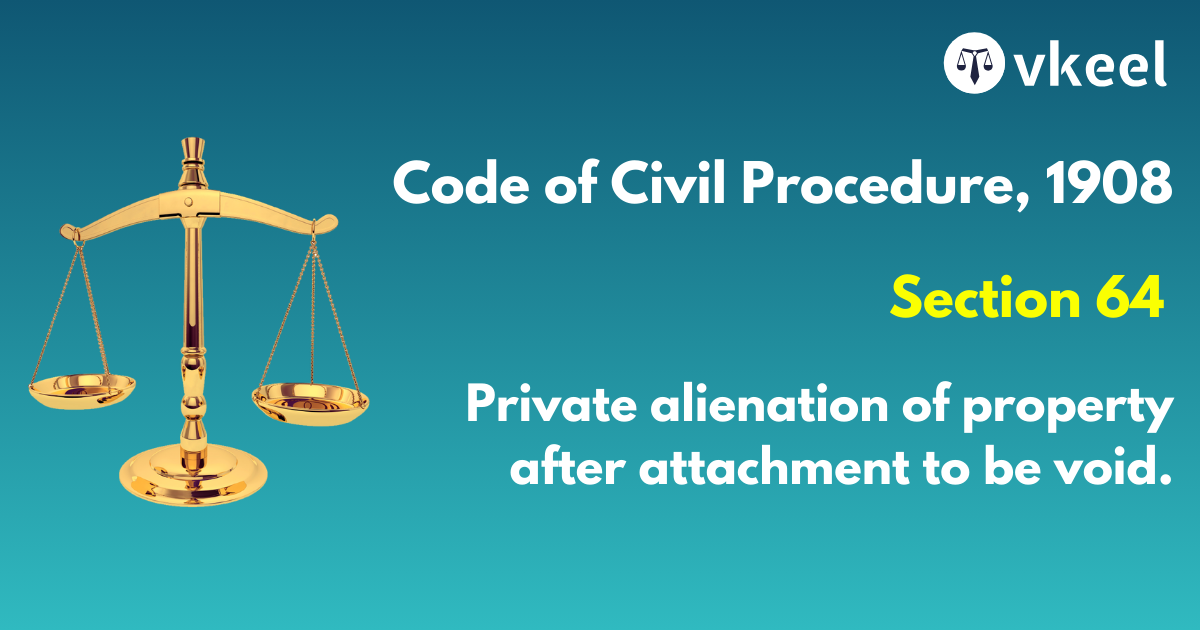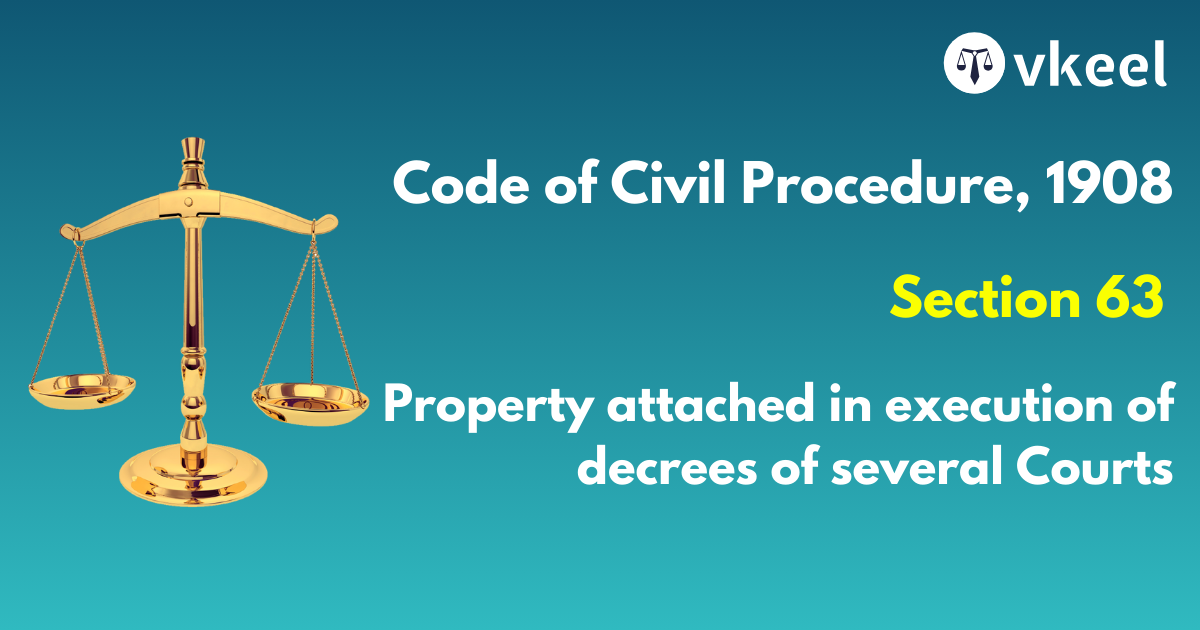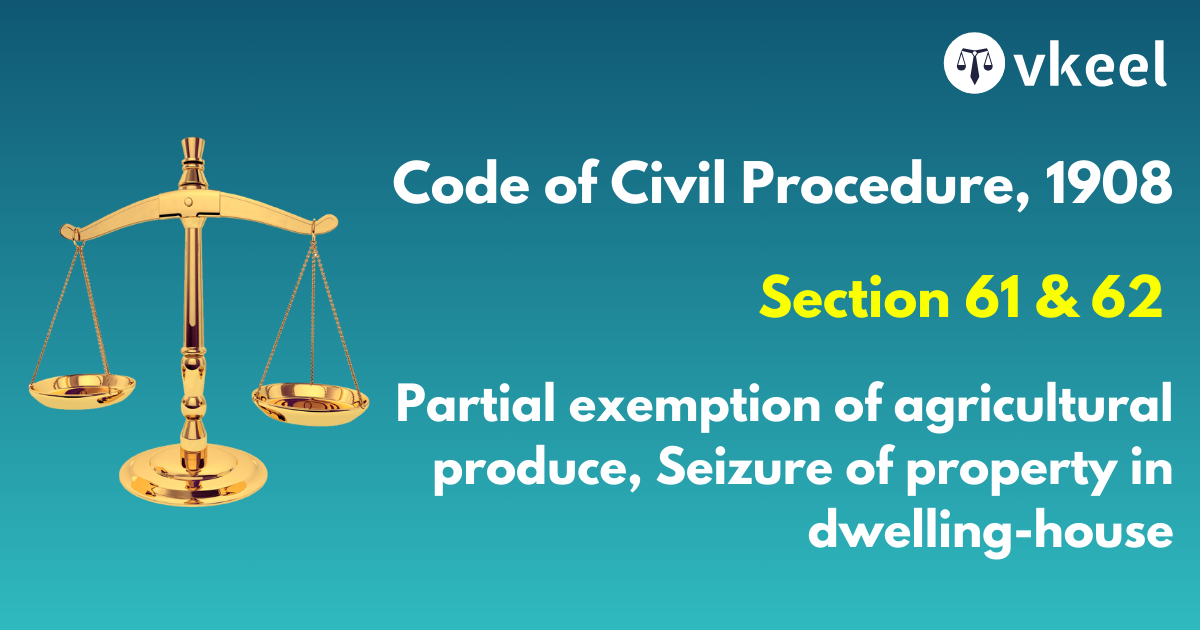Section 56 and 57 of the Code of Civil Procedure, 1908
By Joy Puri
Introduction
The section 56 of the Code of Civil Procedure envisages about the prohibition or the detention of any woman in execution of the decree for money.
The Section 56 of the Code of Civil Procedure is constructed on the principle that there exists certain categories of people, particularly women in this case which have to be treated as a distinctive groups and given exemptions from facing harsh consequences.
By providing the exemption to the women if such a scenario prevails, the provision further entails about the immunity which it confers to the judicial officers of the respective area.
With regards to the Section 57 of the Code of Civil Procedure, In the state of Calcutta there was an amendment by the High Court wherein it stated “Substitute the words “The High Court may, subject to the approval of the State Government” for “The State Government may”. Omit the word “monthly” between the words “of and allowances” vide Cal. Gaz. Pt. I, dated April 20, 1967.”
Section 56 of the Code of Civil Procedure, 1908
Prohibition of arrest or detention of women in execution of decree for money.
Notwithstanding anything in this Part, the Court shall not order the arrest or detention in the civil prison of a woman in execution of a decree for the payment of money.
Section 57 of the Code of Civil Procedure , 1908
Subsistence-allowance.
The State Government may fix scales, graduated according to rank, race and nationality, of monthly allowances payable for the subsistence of judgment-debtors.
Landmark Case Laws
Shrikrishna Eknath Godbole Vs The Union Of India & Ors. S, 2016
Taking into consideration the object of such provision, the classification between men and women is quite reasonable, and the classification has sufficient nexus with the object. Article 14 is of general application and must be read with other provisions which set out the ambit of fundamental rights. Sex is a sound classification and though there can be no discrimination in general on that ground, the Constitution itself provides for special provision in case of women and children. That apart, whilst Article 15(1) of the Constitution of India provides that the State shall not discriminate against any citizen on grounds only of religion, race, caste, sex, place of birth or any of them, Article 15(3), in terms provides that nothing in Article 15 shall prevent the State from making any special provision for women and children. According to us, Section 56 of the CPC, which makes special provision for women, is clearly a provision relatable to Article 15(3) of the Constitution of India, and therefore, there is no reason to declare the same as unconstitutional.
Deepa M Vs Satlinks and Another
Even assuming that Section 56 of the Code of Civil Procedure will not be covered under the term ‘procedure’, even then the order passed by the Tribunal along with the notice are not in violation of Section 56 of the Code of Civil Procedure; it only prohibits arrest or detention.
Setting a condition for securing appearance in Court for the purpose of execution of a decree cannot be said to be in violation of Section 56 of the Code of Civil Procedure.
Cyril Britto Vs Union of India and others
It is undoubtedly true that discrimination on the basis of sex alone is not permissible. However, in the present case, sex is not the sole basis. It is recognition of a reality. Still further, the Constitution makers had clearly laid down that it shall be permissible to make special provision for women. The protection afforded by S. 56 is a special provision calculated to ensure that a woman judgment-debtor is not put to the ignominy of arrest and detention in civil prison in execution of a money decree. In our view, this limited protection is clearly referable to the provision contained in Article 15(3) of the Constitution.
Conclusion
The fundamental crux of the Section 56 of the Code of Civil Procedure lies in the very fact that the humanitarian opinion of the Indian Law safeguards the rights of the certain groups which exist in the society. It upholds the women’s rights and the dignity of the judicial officers thereby involved in the matters.
Disclaimer:
The information provided in the article is for general informational purposes only, and is not intended to constitute legal advice or to be relied upon as a substitute for legal advice. Furthermore, any information contained in the article is not guaranteed to be current, complete or accurate. If you require legal advice or representation, you should contact an attorney or law firm directly. We are not responsible for any damages resulting from any reliance on the content of this website.












